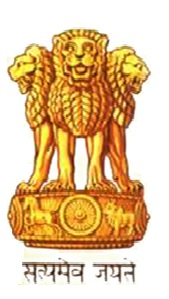
Permanent Mission of India
Geneva
Intervention by India on Agenda Item 7.1 - Research and development for potentially epidemic diseases at the 140th Session of the Meeting of the Executive Board of WHO Delivered by Dr. Sumit Seth, First Secretary on 24 January 2017
Mr. Chair
In the aftermath of the Ebola and Zika crises, discussions on global emergency response have come to dominate the global health agenda. The Interim Ebola Panel, the UN Secretary General’s High-Level Panel on Global Response to Health Crises, the DG’s Advisory Group on Emergencies and the 2015 IHR Review Committee have intensively scrutinised the role played by WHO and has called for urgent strengthening of WHO’s capacities to respond to emergencies.
The 69th World Health Assembly endorsed the Blue print for a new WHO Emergency Programme which aims to put in place a single line of command, single budget, single cadre of staff, single set of business processes and performance benchmarks across all three levels of the organization to deal with health emergencies. As a result WHO has assumed the role of an operational agency, in addition to its traditional norms and standards setting role. Member States need to do a careful assessment of the implications of such role redefinition, including its impact on the budget.
India is of the view that there should be policy coherence between the R&D blueprint for action to prevent pandemics and the broader WHO R&D agenda. Health R&D should be needs-driven and evidence-based and be guided by the core principles of affordability, effectiveness, efficiency, and equity. India would like to request that WHO Secretariat should organise more frequent public consultations concerning activities of the R&D blueprint for action on pandemics, and all interested WHO member States should be invited to participate. In addition, the composition of the scientific and other advisory expert groups should ensure adequate representation from low and middle-income countries.
We would like to have more clarity and details about the proposed public health financial model for supporting research and product development on emerging pathogens prioritized in WHO’s Blueprint process. We are concerned that the report by the Secretariat on a blueprint for research and development preparedness and rapid research response does not explicitly recognize the principle of delinking of price of products from cost of research as an essential component of this model.
Mr. Chair
India has made significant financial contributions to the global Ebola response to the tune of USD 12.1 million. We have also cosponsored and constructively contributed to the WHO Executive Board’s Special Session resolution on Ebola two years back which initiated the process of reforming WHO’s role and capacities in emergencies. India would like to see that in the new WHO Emergency Programme, developing country perspectives are adequately reflected. India supports a strong and well equipped WHO that is capable of leading the global response to all health emergencies. However, we would like to see India’s concerns regarding specific operational elements be taken on board.
Mr. Chair
Before concluding let me take this opportunity to inform that Consistent with India’s priority on health R&D, we have recently joined a new multi-stakeholder innovative partnership called the Coalition for Epidemic Preparedness Innovation (CEPI) to accelerate the development of vaccines for emerging infectious diseases. The CEPI Partnership was officially launched in the recently concluded World Economic Forum in Davos. We believe that there is a need to closely align CEPI with WHO Emergency R&D Blue Print and suitably address issues related to de-linkage, access and Intellectual Property.
Thank you.












